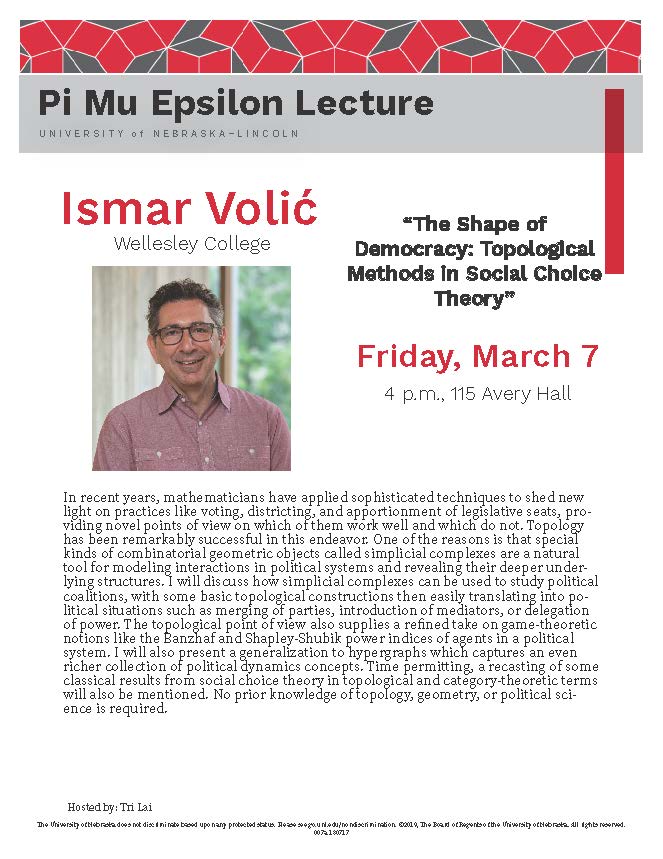
Pi Mu Epsilon Lecture: The Shape of Democracy: Topological Methods in Social Choice Theory
Dr. Ismar Volić of Wellesley College will present our Pi Mu Epsilon Lecture this year on Friday, March 7th, at 4 pm in Avery Hall 115. Dr. Volić will present "The Shape of Democracy: Topological Methods in Social Choice Theory."
With support from the University Program Council, we are organizing a lunch with the speaker at 12:00-1:30 pm in our lounge (348 Avery Hall). If you would like to join, please put your name on the sign-up sheet in the Math Department Office (203 Avery) as soon as possible.
Lunch with Dr. Ismar Volić
Time: Friday, March 7th at 12:00-1:30 pm
Where: Avery Hall 348
Sign-up Sheet: Avery Hall 203
Pi Mu Epsilon Lecture
Time: Friday, March 7th at 4 pm
Where: Avery Hall 115
Speaker: Dr. Ismar Volić of Wellesley College
Title: The Shape of Democracy: Topological Methods in Social Choice Theory
Abstract: In recent years, mathematicians have applied sophisticated techniques to shed new light on practices like voting, districting, and apportionment of legislative seats, providing novel points of view on which of them work well and which do not. Topology has been remarkably successful in this endeavor. One of the reasons is that special kinds of combinatorial geometric objects called simplicial complexes are a natural tool for modeling interactions in political systems and revealing their deeper underlying structures.
I will discuss how simplicial complexes can be used to study political coalitions, with some basic topological constructions then easily translating into political situations such as merging of parties, introduction of mediators, or delegation of power. The topological point of view also supplies a refined take on game-theoretic notions like the Banzhaf and Shapley-Shubik power indices of agents in a political system. I will also present a generalization to hypergraphs which captures an even richer collection of political dynamics concepts. Time permitting, a recasting of some classical results from social choice theory in topological and category-theoretic terms will also be mentioned.
No prior knowledge of topology, geometry, or political science is required. This talk is specifically presented with an undergraduate student audience in mind.